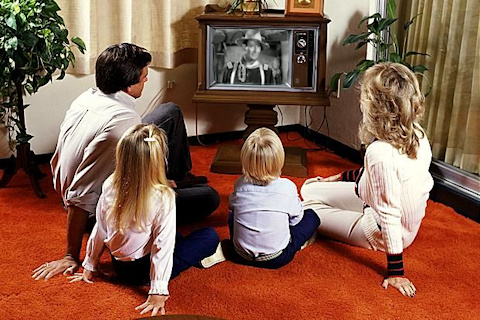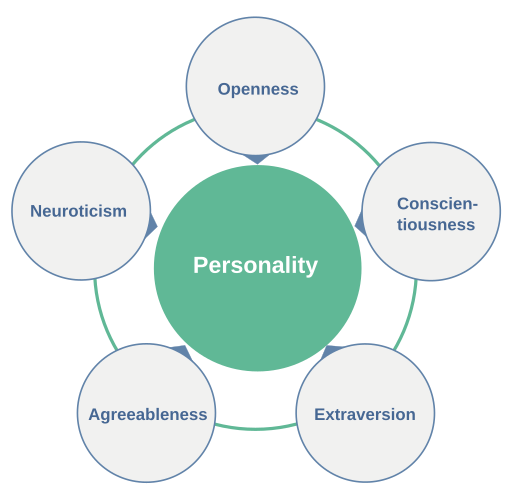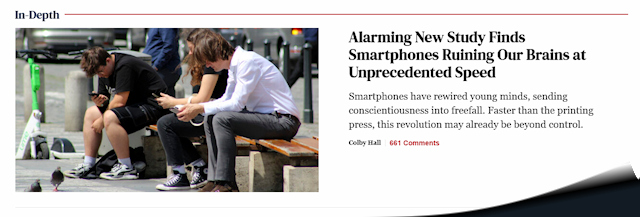
First- some housekeeping: this is the 150th post of this iteration of Amerika Erwache! I offer my sincere thanks to all of you who have made it a point to read this blog and join me on the journey of promoting National Socialism in America. Your support and encouragement makes all the difference.

We now return to our regularly scheduled programing. 🙂

I have participated in my children’s lives since the first minute they were born. Literally. I cut the umbilical cord for each of them, separating them from their mother, and ushering them into this world- for better or worse. And I have tried to help them ever since, guiding them into adulthood as best I can (not without having made a few mistakes along the way, but parenting is not an exact science). Of course, no parent is around 24/7 and children, being little sponges, tend to soak-up quite a bit of unfiltered, unregulated information.

Blacks quartered with Whites.
It has always been this way, of course. Whether it was the group of kids hanging out in the back of the school yard, or re-runs on TV of dubious value (I’m looking at you Hogan’s Heroes), kids have always been exposed to sundry societal and cultural influences, some good, some bad, which served as the raw data from which their Worldview was formed.
However, societies change and that has a great deal to do with how the technology used by a society changes, as oftentimes it directly impacts how life is lived and experienced. Think of the printing press, the steam engine, the cotton gin, and the automobile. Or more recently, the television, the transistor, the home computer, and the now, of course, the smart phone. In each case, these advances radically changed the world and culture we live in, to say nothing of our ability to thrive and find meaning in it.
So incorporated into daily life have these things become that we don’t give them a thought. But what if that technology is now telling you what to think, or even worse, making it unnecessary to think at all?

I’m not the first parent to lament how life seemed simpler back when I was a kid. Without putting too fine a point on it, there were fewer distractions: Push marketing was an obnoxious roadside billboard; there were only three or four channels to choose from on the television, and if Mom or Dad wanted to watch something, you were out of luck or watched what they were watching; there was one phone-line into the house and heaven help you if you were on it when Dad was expecting a call: if you wanted to talk to your friends, you got on your bike and rode over to their house. Fewer distractions meant you actually had to live your life in person, in real time.
But, like I said, society changes as technology evolves. Despite my best efforts, I began feeling sorry for my children recently (they are all technically Gen Z, though my eldest is very Millennial in mindset). The power and scope of the forces demanding my children’s attention as they transitioned from pre-teens to teens, then teens to early adulthood seemed to far outweigh my limited ability to guide and instruct them.
The emphasis for doing everything “online” during the Scamdemic didn’t help, to say the least. Now they are “on the phone” all the time: my eldest wears headphones so much I’m worried about her skull becoming deformed. The middle child can send and receive calls and surf the web from some device on his wrist. My youngest is perpetually on insta-tik-face-chat-thingy. The media has become the message.

I tried to console myself, thinking that us “old farts” always reach a point where we start every lesson with “When I was a kid…”; that such had been going on from time immemorial; and that young people these days were essentially navigating the same waters I sailed, even if the coastline looks a little different. However, I also suspected I was trying to ignore the obvious: things really have changed. And not for the better.
Sadly, an article in the Financial Times suggests I’m right.
Spring-boarding from an original study of how the Corona Virus Scamdemic impacted or prompted personality changes in young adults, the author of the article dug deeper into the data and discovered some interesting, and depressing, information.
First, he confirmed that personality changes had, and are, taking place. In addition, he found “a sustained erosion of conscientiousness, with the fall especially pronounced among young adults. Digging deeper into the data, which comes from the Understanding America Study, we can see that people in their twenties and thirties in particular report feeling increasingly easily distracted and careless, less tenacious and less likely to make and deliver on commitments.”
I’ll translate that to English. I confess, I had to look up exactly what “conscientiousness” was.
Without giving you a full-blown course on personality psychology, one of the methods used to explore personality is called the “Five-factor model of personality traits”. The idea is that all personalities have some degree of the following five traits:

- Neuroticism: negativity stemming from negative emotions like fear, anger, shame, envy, or depression. Highly neurotic people have more trouble coping with stressful events, are more likely to insult or lash out at others, and are more likely to interpret ordinary situations as hopelessly difficult.
- Extraversion: is typically associated with sociability, boldness, talkativeness, and energy.
- Openness: relates to aesthetic sensitivity, creativity, intellectual curiosity, imagination, and willingness to entertain new ideas.
- Agreeableness: the personality trait of being kind, sympathetic, cooperative, warm, honest, straightforward, and considerate.
- Conscientiousness: measures self-control, diligence, and attention to detail.
It is this last trait, conscientiousness, that we are concerned with, so let’s flesh that out a little. According to that great repository of truth, Wikipedia (cough…cough), “Conscientiousness is the personality trait of being responsible, careful, or diligent. Conscientiousness implies a desire to do a task well, and to take obligations to others seriously. Conscientious people tend to be efficient and organized as opposed to easy-going and disorderly. They tend to show self-discipline, act dutifully, and aim for achievement; they display planned rather than spontaneous behavior; and they are generally dependable. Conscientiousness manifests in characteristic behaviors such as being neat, systematic, careful, thorough, and deliberate (tending to think carefully before acting).” (Interestingly, this definition of conscientiousness sounds to me more like the simple Prussian or Prussian/German values my father tried to teach me, but I digress).
According to the study, “in less than a decade, conscientiousness — the trait most closely linked to responsibility, follow-through, and self-control — has collapsed among young adults. For those aged 16 to 39, it’s not a gradual erosion; it’s a plunge from respectability into the low 30th percentile. Older adults (who aren’t addicted to smartphones), meanwhile, remain essentially unchanged.”
This chart sums it up nicely:

The article further states:
While a full explanation of these shifts requires thorough investigation, and there will be many factors at work, smartphones and streaming services seem likely culprits. The advent of ubiquitous and hyper-engaging digital media has led to an explosion in distraction, as well as making it easier than ever to either not make plans in the first place or to abandon them. The sheer convenience of the online world makes real-life commitments feel messy and effortful. And the rise of time spent online and the attendant decline in face-to-face interactions enable behaviours such as “ghosting”.
It is important to note that in the chart above, the dive off the cliff starts at least as far back as 2016, well before the Scamdemic, and coincides with the release of the Iphone 5 and onward.

As an another article covering the Financial Times story states:
In less than 15 years, we’ve tethered billions of brains to an always-on, infinitely stimulating “meta-world” — a hybrid of the broader digital ecosystem, the AI-powered feed that tells you what is conventionally known, and social media platforms that distort reality by promoting the loudest, most self-promotional sliver of humanity. This is not a tool for quiet reflection; it’s a behavioral slot machine that lives in your hand.
And the cost is attention. Not just “I get distracted sometimes” attention, but the deep, sustained focus that conscientiousness requires. The skill of delaying gratification, resisting impulse, and staying the course is being replaced by an addiction to novelty, validation, and stimulation. The more we indulge, the less we can resist indulging — and the chart’s free-falling red line for young adults shows exactly where that road leads.

“Life isn’t just about knowing what to do, it’s about following through. Being motivated and persistent is a huge help.”

Now that we know what is meant by “conscientiousness”, and how it is a decreasing factor in younger Americans’ personalities, we can better understand the problem:
As every National Socialist knows, one of the core tenets of our Worldview is “The common good over self interest.” This simple statement is at the heart of every demand found on the ANP’s website. With reflection, one can also clearly see it is the foundation of the Fourteen Words as well: “We must secure the existence of our people and a future for white children.” In both cases, it is an argument for serving something greater than ourselves, and in so doing, living to our full potential. It is an argument for sustained effort and commitment.
As is often said, National Socialism is not a spectator sport. It requires constant action. In a word, it demands conscientiousness. If we take our above definition of this personality trait and substitute the words National Socialism for “conscientiousness”, listen to how well it reads if paraphrased only slightly:
“The National Socialist exhibits the trait of being responsible, careful, and diligent. National Socialism implies a desire to do a task well, and to take obligations to others seriously. National Socialist people tend to be efficient and organized as opposed to easy-going and disorderly. They tend to show self-discipline, act dutifully, and aim for achievement; they display planned rather than spontaneous behavior; and they are generally dependable. The National Socialist manifests characteristic behaviors such as being neat, systematic, careful, thorough, and deliberate.”
I’m not saying “National Socialism” and “conscientiousness” are interchangeable, but I do think it’s fair to say that a good National Socialist better have a fair degree of conscientiousness in his or her personality makeup.

What can we do? Fortunately, as the original study the Financial Times article used as its springboard shows, personalities can change. That is to say, you can become more “conscientious” if you are willing to put in the effort. First and foremost, live what we preach. Be a conscientious National Socialist. Be active for the Party: distribute flyers, talk to your neighbors, pay your monthly dues on time, contribute your creations to the ANP and The White Worker. Be involved. In other words, fight the (often Jewish created) distractions. They want you to roll-over and play dead. We want you standing proudly on your own two feet.
“However [the] future will not be won without struggle. It demands our total commitment—our energy, our voices, and our relentless, tireless, activism. Every leaflet or flyer or sticker that spreads our message has a chance to awaken a young White man or woman looking to break free from this oppressive multicultural nightmare of a ZOG system.”
Second, encourage younger White Americans to THINK critically, for themselves, and not accept everything they are being force-fed. Challenge them to find at least one other opinion or point of view for the information they are hearing on that podcast or seeing on this news feed. To borrow an expression from Reagan (who, ironically, borrowed it from the Russians), teach them to “Trust, but verify.”
Our Judeo-Captialist overlords profit from eroding conscientiousness in favor of increasing neuroticism. Fear, shame, and envy make it easier to sell products. Because of this, they want sheeple devoid of critical thinking skills and the ability to commit to a cause, easily distracted, and unmotivated to the point of accepting what they are told without question.
Encourage young people to follow-up the “what” they are seeing or being told with the query “why” are they being told this? Ask “who” is doing the telling. “How” do the media mavens spinning their web actually know what they know? National Socialism is not scared to answer these questions. In fact, we’d love to have the conversation.
Amerika Erwache!
SUBSCRIBE TO THIS BLOG
(It’s free, and mostly painless)

Leave a Reply